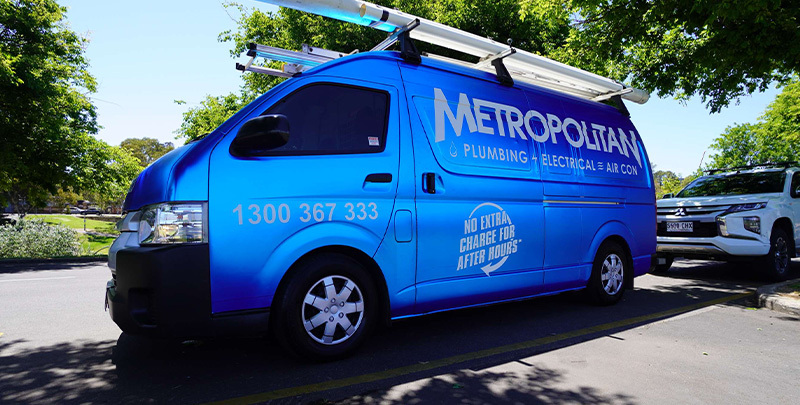
Central Air Conditioning Compressor Not Working?
Just when you thought you could sneak in a little nap on a hot summer afternoon, suddenly you’re frowning against a faulty central air conditioning (AC) compressor.
While your trusty electric fan is a great alternative, there are times when the so-called “AC wind” just calls your name.
Truly, there’s nothing more frustrating than a central (or ducted) air conditioning compressor not working, especially on a hot Aussie summer day! But don’t lose your cool just yet; let’s dive into this together and try to make sense of it all, shall we?
A Quick Rundown on Your AC System
Your ducted air conditioning system, specifically that shiny outdoor unit, runs tirelessly to pump cool air throughout your humble abode.
More specifically, your air conditioning system works by using a special gas called refrigerant, and it’s all about shuttling this refrigerant between two sets of coils: the indoor unit that blows cool air into your house and the outdoor unit that expels the heat from your house.
First, the refrigerant absorbs heat from your house, turning it from a low-pressure gas to a high-pressure gas. This gaseous refrigerant then travels to the outdoor unit and condenses in the compressor, which removes the heat and turns it back into a chilly liquid. Then, this liquid refrigerant heads back to the indoor unit, ready to absorb more heat and keep your house as cool as a cucumber.
And the real heart of the system, the AC compressor, is at the centre of this universe. Located strategically in the outdoor unit, it compresses the refrigerant, which is crucial for the cool air.

Delving Deeper to the Compressor
Your air conditioning compressor is one hardworking piece. It’s the heart of your entire air conditioning unit and has a crucial role to play in cooling your home.
The compressor, found in your outdoor unit, is responsible for converting low-pressure refrigerant gas received from the indoor unit into high-pressure gas.
But how does this all happen, you ask? Well, air conditioning compressors consist of three main parts working harmoniously: the motor, pump, and housing.
-
The Motor
Nestled inside the compressor housing, the motor is the driving force of the compressor. When you crank up that air conditioning, the motor springs into action.
-
The Pump
Linked to the motor, the pump is where the real action takes place! As the motor starts turning, it drives the pump, which then brings in the low-pressure refrigerant gas from the indoor unit and compresses it into a high-pressure gas.
-
The Housing
The housing is the protective shell that covers the motor and the pump. It not only provides shelter for these components from the harsh elements, but it also contains the high-pressure gas before it is released into the condenser unit.
All these parts work together in perfect harmony, ensuring that your home stays pleasantly cool.
However, if they fail to do so, there’s a good chance your compressor is having a bit of trouble, which might mean blowing more hot air than cold. But no worries, that’s when you call a heating, ventilation and air conditioning (HVAC) technician to set things right again.

AC Compressor Problems: What Could Go Wrong?
As mentioned, AC compressors and their respective parts work together in perfect harmony, ensuring that your home stays pleasantly cool.
However, if they fail to do so, there’s a good chance your compressor is having a bit of trouble, which could be one (or more) of the following:
- A broken valve or faulty compressor: When the compressor of your AC unit is facing reduced cooling capacity and kicking out warm air instead of a cool breeze, the culprit could either be a broken valve near the compressor or a faulty compressor itself. The compressor’s working involves the pumping of refrigerant under high pressure to your indoor unit containing the evaporator coil, enabling the cooling process.
- Power supply issues: Sometimes power surges can give your AC compressor the blues. If there’s a tripped breaker or a blown fuse in your circuit breaker – your compressor might just stop turning. In such cases, try giving your circuit breaker a quick reset. But if the breaker continues to trip, call in the professionals because you might be dealing with some serious electrical problems.
- Refrigerant leaks or excessive refrigerant pressure: The balance of the refrigerant levels and the pressure levels within the system – it’s got to be just right. If it’s too low, it could be due to a refrigerant leak. If it’s too high, you might be dealing with a dirty filter. Either could spell trouble for your AC compressor.
- Fan malfunction: The outdoor unit of your air conditioner has a blower fan that helps dissipate the heat absorbed by the refrigerant. If the fan is not working correctly or stops altogether, it will make it harder for the condenser coils to release the heat, leading to higher pressure and temperatures, and increased wear and tear on your compressor.
- Defective condenser coils: Your condenser coil is the unsung hero in the outdoor unit of your AC system. It takes that high-pressure gaseous refrigerant from the compressor and transforms it into a high-pressure liquid, removing the latent heat in the process. But if the condenser coil gets a bit on the grubby side, it can’t shed heat as effectively, placing a staunch strain on your compressor.
- Low suction or discharge pressure: Compressors also are all about balance, particularly when it comes to suction and discharge pressure. If the suction pressure is too low, the compressor has to work overtime to get things done. And when discharge pressure gets too high, your compressor quickly starts feeling the pinch, leading yet again to compressor problems.
- Lack of lubrication: Just like every other workhorse, your compressor needs to stay well-lubricated to continue compressing refrigerant without a hitch. If there’s insufficient oil lubricant, the parts can start to cop a lot of friction, generating excess heat and potentially leading to serious compressor problems.
- Contaminated refrigerant: Your air conditioner’s refrigerant should be clean and free of impurities. However, if there’s a presence of moisture or non-condensable gases, it can lead to a range of issues for your compressor, including lower efficiency, higher electricity consumption, and in some cases, compressor failure.
- Capacitor failure: In every AC compressor, there’s a start capacitor that gives the motor the initial jolt it needs to get turning. If you have a faulty capacitor, the compressor not turning on is a common scenario, and your AC won’t be able to produce that much-needed cool air.
While these issues can have diverse causes and effects, they often result in your home not being cooled properly. Be sure to get a professional in swiftly to diagnose any issues with your HVAC compressor or your AC system as a whole.
The sooner you can get it fixed, the faster you can get back to enjoying a cool and comfy home in our great Aussie heat.
When in Doubt, Call an HVAC Professional
Tinkering with your air conditioning systems should not be a DIY project inspired by a passing whim. When you’ve got a situation where the central air conditioning compressor is not working, you need the trained gaze of a professional HVAC technician.
An HVAC technician or an air conditioning repair specialist is not just a tradesperson; they’ve undergone specialist training to ensure they know their evaporator coils from their condenser coils and their starter relays from their terminal connections.
Chill Out and Enjoy Ducted AC
Wrestling with a faulty AC compressor on a hot summer’s day can test any Aussie’s cool, calm demeanour. Keeping things chill is, after all, pivotal to enjoying the heat.
So, next time the heat threatens to ruin a perfect summer nap, remember that there’s always a way to get things right. Proper maintenance and prompt professional help are your best defence against compressor woes.
Stay cool and enjoy the comfort of your home, whether it’s a balmy spring day or the peak of our sweltering summer.
Please note: This information is provided for advice purposes only. Regulations differ from state to state, so please consult your local authorities or an industry professional before proceeding with any work. See our Terms & Conditions here.
Published: 5 December 2023